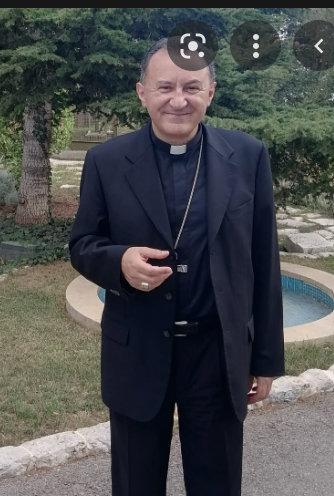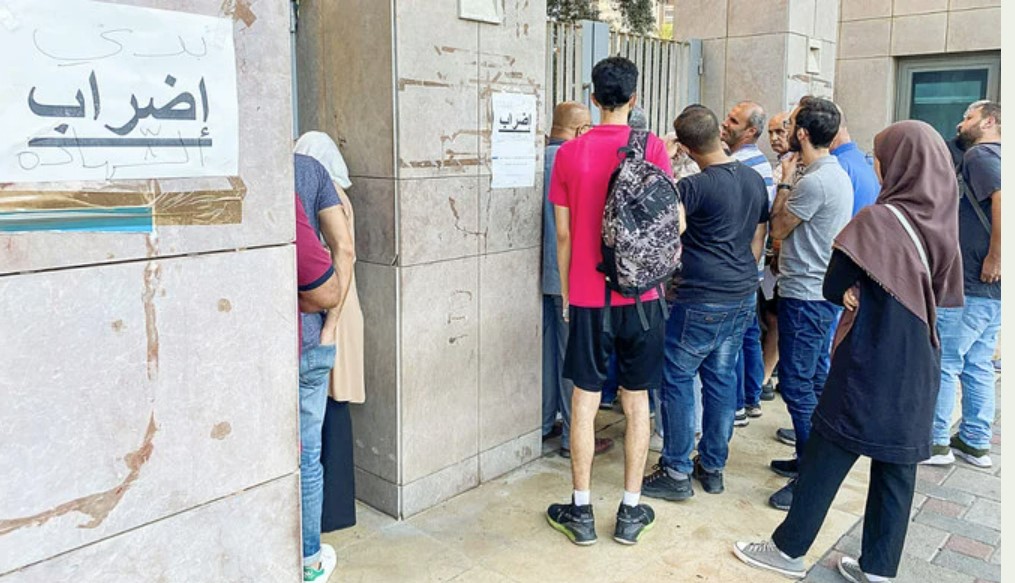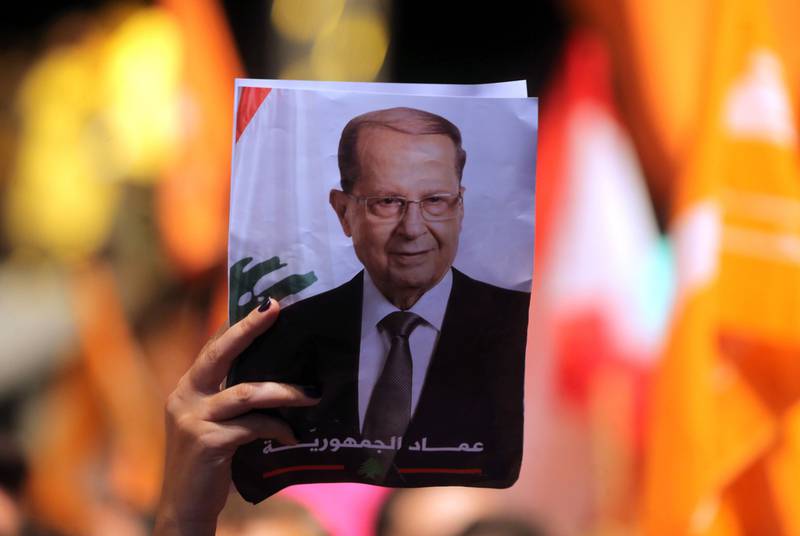
by cruxnow.com -- Doreen Abi Raad -- BEIRUT — Pope Francis’ representative to Lebanon, who is preparing to go to a new assignment as nuncio to Mexico, said he would cherish the four years he has spent in the land of the cedars. “It has been a very beautiful moment in my life, notwithstanding all the difficulties Lebanon is facing,” said Maltese Archbishop Joseph Spiteri, nuncio to Lebanon. But he said what he would miss most “is the meetings with the Lebanese. Their originality, their resilience, their welcoming nature. I consider myself a friend of Lebanon.” In a wide-ranging interview with Catholic News Service, Archbishop Spiteri spoke of the challenges the nation faced during his four years, including a stifling socio-economic crisis and the 2020 Beirut port explosions. He described the delicate navigation through Lebanon’s mosaic of 18 religious sects — Muslim, Christian and Druze — inherent with varied intricacies, and he spoke of his hopes for the future of the country. He said he hoped the country “can have a fresh start as soon as possible.” “The real treasure that Lebanon can share with the world is the resilience of its citizens, the great possibility that the Lebanese have of how to live together,” Spiteri said.
The archbishop described Lebanese helping each other after the port explosion, one of the largest nonnuclear blasts in history. It destroyed the immediate area and damaged more than half the city, leaving more than 200 people dead, 7,000 wounded and displacing at least 300,000 people. Yet, amid all the devastation, Spiteri said he was struck by the solidarity among thousands of people, mostly youth, who came from all over the country, “working together, with brooms and buckets in their hands, to clean up the debris. And seeing the stalls of Caritas distributing warm meals, the makeshift clinics still trying to help the wounded.” “That was an immediate ray of hope given by the Lebanese themselves,” the nuncio said. “It was incredible. What surprises me always is the great resilience of the Lebanese people and their solidarity.”

By Nader Durgham - Washington Post -- BEIRUT — Shopping for grapes at Beirut’s wholesale market to resell from her produce cart, an exhausted Rawaa Ghosn described how another layer of her increasingly tenuous life was peeled away after she had to give up the use of her mobile phone in the face of skyrocketing rates. “I am worried something might happen to me in the street,” the 66-year-old said, adding that she suffers from cancer, heart disease and diabetes. “I would usually call my children or anyone. Now, I cannot recharge my phone account.” It’s just one more symptom of Lebanon’s unfolding economic crisis that the United Nations said last year had plunged 82 percent of the country into poverty. Amid some of the worst inflation in the world, the value of the Lebanese pound has plummeted by 90 percent. A man took hostages at a bank in Lebanon. People came to support him.
When the Ministry of Telecommunications decided on July 1 to bring fees in line with the rising cost of operations, the price of mobile phone service quintupled while internet broadband fees more than doubled. The caretaker minister of telecommunications, Johnny Corm, defended the spike, saying it is necessary to keep the sector afloat amid the country’s economic collapse. But it also meant that the rest of the population, whose real wages have nosedived with the currency, can’t afford their phones, which are used for a variety of essential tasks, including accessing the internet, checking when electricity is available and ordering from the pharmacy or grocery store. Of course, phone use also depends on whether there is even service. Last week, employees at the country’s two mobile phone companies, Touch and Alfa, went on strike over wages. On Wednesday, they were joined by employees of the main telecommunications provider, Ogero. The result has been disruptions in internet and cellular communications across the country, even completely shutting it down in some places.

سجعان قزي
@AzziSejean
العِراقُ يناجي لبنانَ ويَدعوه إِلى اقتفاءِ أثَرِه. لكنَّ العراقَ لم يَتوحدّ بإكليلِ غارٍ ولم يَتقسَّم بغصنِ زيتون. مرَّت عليه العقائدُ كخيلٍ تَعدو في الباديةِ تُخلّفُ غُبارًا ولا تَحسُم المعارك. لكنَّ لبنانَ ينتظرُ ما سيؤول صراعُ بغداد مع طهران ليَستَشرفَ تطوراتِه الآتيةَ في الأشهرِ القليلةِ الآتية. إيرانُ التي ظنَّت أنّها على مشارفِ انتصارِ ڤيينا، تفاجأت بمعركةِ بغداد. وإيرانيّو لبنان الّذين ظنّوا أنّهم على مشارفِ انتصارِ انتخاباتِ رئاسةِ الجُمهورية وانتصارٍ في مفاوضاتِ الطاقةِ مع إسرائيل، تفاجأوا أيضًا بتسويفٍ إسرائيلي قد يؤدي إلى امتحانٍ عسكريٍّ ما. الشرقُ والغربُ على أبوابِ بلدينا بالواسطة. ورئيسُ الجمهوريّةِ اللبنانيّةِ ستَنتخِبُه أحداثُ العراق أو لن يُنتخَب.
بين لبنان والعراق علاقةٌ سببيّةٌ منذ عقود. تَتشابه حينًا وتَتناقضُ أحيانًا. واللبنانيّون يُصبحون أمامَ حتميّةِ المواجهةِ، بل المقاومةِ، إذا حاولت إيران تنصيبَ رئيسٍ من مِحورِها. آنئذٍ، يَفقِدُ الحوارُ، الذي نؤمن به، جدواه. فما قيمةُ حوارٍ مع جماعةٍ أو دولةٍ مُصمِّمةٍ على قتالِك واحتلالِك من جهةٍ، وتَحتقِرُ ذكاءَك وتُوهمُكَ بشَغفِها بالحواِر لتُطْبِقَ خِلسةً عليك من جهةِ أخرى. إنَ انتخابَ رئيسٍ من خارجِ هُويّةِ لبنانَ السياديّةِ هو فعلٌ باطِلٌ يَستكملُ الانقلابَ الجاري ويُساوي الفراغَ الوطنيّ. والمسيحيّون ليسوا مستعدّين لتوزيعِ رئاسةِ الجُمهوريّة إعاشةً كلَّ ستِّ سنواتٍ على هذا أو ذاك. ألم تَنصَّ مُقدِّمةُ دستورِ الطائف على أنْ "لا شرعيّةَ لأيِّ سلطةٍ تُناقض ميثاقَ العيشِ المشترَك؟" فأيُّ شرعيّةٍ بدون رئيسٍ؟ وأيُّ عيشٍ مشترَكٍ بدون الطائفةِ التي أسّسَت العيشَ المشترَك؟

By Michael Young -- thenationalnews.com -- On Thursday, Lebanon will enter the two-month constitutional period during which parliament must elect a successor to President Michel Aoun. Revealingly, Hezbollah has adopted a different attitude than the one six years ago, when it had provoked a debilitating two-year presidential vacuum as leverage to bring Mr Aoun to office. As a number of observers have remarked, Hezbollah cannot look back on its support for an Aoun presidency as a success. While this did allow the party to reinforce its alliance with a major Christian partner, strengthening Hezbollah’s leverage in the political system, it also exposed the party to the repercussions of Mr Aoun’s falling popularity. Rightly or wrongly, many Lebanese associate the economic collapse that began in 2019 with the President, even if there is plenty of blame to spread around the country’s corrupt political class.
With economic pain reaching deep into the Shiite community, Hezbollah appears to be more careful in its presidential calculations today. To an extent, conditions have also imposed this. The outcome of the parliamentary election in May led to a legislature in which none of the country’s major political alignments has a majority, making for what is often a hung parliament. Only on rare occasions can Hezbollah impose a majority, as when it compelled its reluctant Aounist allies to help ensure the re-election of Nabih Berri as Speaker. Rather than naming a presidential candidate, Hezbollah appears to be waiting and seeing if a consensus emerges around a given figure. The problem is that two of its Maronite Christian allies are competing for the presidency – Gebran Bassil, the son-in-law of Mr Aoun and head of the Free Patriotic Movement, and Suleiman Franjieh, the grandson of a former president. However, both men face major problems – Mr Bassil is under US sanctions, while Mr Franjieh provokes little enthusiasm outside a small portion of his own community. Hezbollah has faced challenges that showed antagonism towards it was growing in potentially dangerous ways
Khazen History


Historical Feature:
Churches and Monasteries of the Khazen family

St. Anthony of Padua Church in Ballouneh
Mar Abda Church in Bakaatit Kanaan
Saint Michael Church in Bkaatouta
Saint Therese Church in Qolayaat
Saint Simeon Stylites (مار سمعان العامودي) Church In Ajaltoun
Virgin Mary Church (سيدة المعونات) in Sheilé
Assumption of Mary Church in Ballouneh
1 - The sword of the Maronite Prince
2 - LES KHAZEN CONSULS DE FRANCE
3 - LES MARONITES & LES KHAZEN
4 - LES MAAN & LES KHAZEN
5 - ORIGINE DE LA FAMILLE
Population Movements to Keserwan - The Khazens and The Maans
ما جاء عن الثورة في المقاطعة الكسروانية
ثورة أهالي كسروان على المشايخ الخوازنة وأسبابها
Origins of the "Prince of Maronite" Title
Growing diversity: the Khazin sheiks and the clergy in the first decades of the 18th century
Historical Members:
Barbar Beik El Khazen [English]
Patriach Toubia Kaiss El Khazen(Biography & Life Part1 Part2) (Arabic)
Patriach Youssef Dargham El Khazen (Cont'd)
Cheikh Bishara Jafal El Khazen
Patriarch Youssef Raji El Khazen
The Martyrs Cheikh Philippe & Cheikh Farid El Khazen
Cheikh Nawfal El Khazen (Consul De France)
Cheikh Hossun El Khazen (Consul De France)
Cheikh Abou-Nawfal El Khazen (Consul De France)
Cheikh Francis Abee Nader & his son Yousef
Cheikh Abou-Kanso El Khazen (Consul De France)
Cheikh Abou Nader El Khazen
Cheikh Chafic El Khazen
Cheikh Keserwan El Khazen
Cheikh Serhal El Khazen [English]
Cheikh Rafiq El Khazen [English]
Cheikh Hanna El Khazen
Cheikha Arzi El Khazen
Marie El Khazen